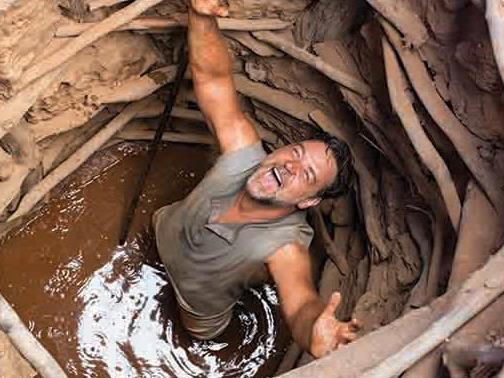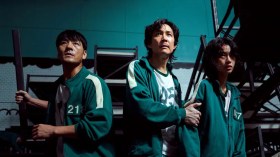Almost a century after the war that came to define the Australian ethos, a man entrenched in our modern tradition of celluloid storytelling tackles the aftermath of the event. In his directorial debut, Russell Crowe creates his own fable from the Battle of Lone Pine at Gallipoli, not just from the combat that took so many lives, but by also exploring the repercussions for those left behind. Working with a screenplay by Andrew Anastasios and Andrew Knight (The Broken Shore), the actor-turned-filmmaker tells a tale of duty and devotion as filtered through fortitude and forgiveness. A personal account of a father and his sons is crafted to convey local sentiments; however The Water Diviner doesn’t only relate an account of a farmer looking for answers about his missing children – it contemplates the echoes of the conflict that rage in the former Ottoman Empire, as well.
Starring as well as helming, Crowe is essential Australian everyman Joshua Connor, hard at work on his patch of outback land with three sons to follow in his footsteps. Upon the outbreak of World War I, Arthur (Ryan Corr, Wolf Creek 2), Edward (James Fraser, The Turning) and Henry (Ben O’Toole, TV’s Love Child) depart to serve their country with assurance, leaving Joshua and his wife Eliza (Jacqueline McKenzie, Fell) roaming around their empty property. He has a preternatural gift for locating water, hence the movie’s title in its most basic form, yet is plagued by the lack of certainty about his offspring’s final fates. Determined to find the answers, however tragic, he travels to Constantinople on a mission of resolution.
Just as The Railway Man covered just a year ago, redemption and acceptance have become an integral part of the majority of contemporary war chronicles. Here, through the assistance of kindly Australian officer Cyril Hughes (Jai Courtney, Felony), Joshua comes face-to-face with two soldiers – Major Hasan (Yilmaz Erdogan, Rhino Season) and Sgt. Jemal (Cem Yilmaz, A Magnificent Haunting) – now aiding the Anzacs, but shooting at his sons as adversaries during the bulk of the battle. The accord that evolves is mirrored by his fondness for the friendly but forlorn Ayshe (Olga Kurylenko, Vampire Academy), at the hotel her son (Dylan Georgiades, Kath & Kimderella) has convinced him to stay in. Symbolism saturates every encounter, as do matches made on each side of the cultural divide, in an effort designed to tug at heartstrings, rather than be subtle.
The perspective afforded by contemplating the other side of a story so often only seen through national pride is a surprising and sensitive addition to a feature dressed up in Australian charm. Sunburnt vistas of striking native bushland mark cinematographer Andrew Lesnie’s (Healing) visual framework for the narrative, paired with a Turkish counterpart in the rocky beaches and similar shrubbery of that country’s landscape. It is this duality that works best in Crowe’s contemplation of the cost of war on the most intimate of levels, as his protagonist’s excursion embodies. Less successful is the decision to approach the circumstances with magical realism, a move made by a man making a myth, but one not always suited to the material.
Instead, neatness prevails, as performances that hit all of the standard notes of stoicism, sweetness, pain and poignancy – even when furnishing a late action-packed break – show. Flitting between timeframes to piece the before and after of the Connor family’s life together, the tale goes exactly where viewers will easily predict, the emphasis upon uncanny abilities to detect liquid, feel the presence of those lost, and read tea-leaves perhaps the most unexpected developments. The overall message of communal grief and shared empathy flirts with grit but never loses its warmth, sharing the handsome sheen of the many picturesque sights seen, and evoking comfort in the recurrence of water as a motif of hope and solace. Alas, though an earnest and elegant by-the-book cinematic saga from the first-timer behind the lens, in its too-calculated mixing of the mystical and the melodramatic, The Water Diviner boats the heart but not the resonance it so desperately strives to find.
Rating: 2.5 stars out of 5
The Water Diviner
Director: Russell Crowe
Australia / Turkey / USA, 2014, 111 mins
Release date: December 26
Distributor: eOne / Universal
Rated: M
Actors:
Director:
Format:
Country:
Release:





